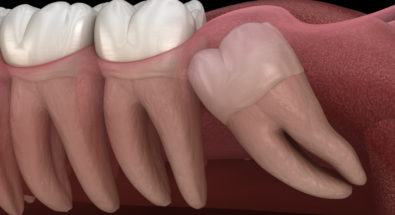What You Need to Know Before Going in For Wisdom Teeth Extraction
More than 80% of the population of Canada has or will need to have their wisdom teeth removed at some point in their lives. While some patients may have them removed at the first sign of detection, others may decide to hold off on having them removed until there are obvious signs of eruption or intrusion. Unfortunately, the longer you wait to have them removed, the more damage they can cause within your mouth, including damage to adjacent teeth and infections or more post-op complications or prolonged recovery. If you’re planning on having your wisdom teeth removed, here are some things you should know before you go in for your surgery
Firstly, What You Need to Consider If You’re Unsure About Surgery
It is possible to live unproblematically with wisdom teeth intact; however,
- Young adults (25 & younger) have the most comfortable time removing their wisdom teeth because the roots of the molars have not yet completely developed, and the jawbone is not as dense as when you get older
- Younger patients tend to heal faster after wisdom teeth extractions compared to patients older than 30
- Wisdom teeth may or may not cause a problem but when they do at an older age, they are more difficult to deal with and complication rates arise
- Certain medical conditions have been known to aggravate wisdom teeth, so it’s highly recommended to have them removed when you are young and healthy.
Questions to Ask Your Dentist
Before you have your wisdom teeth removed, you should understand the importance of your oral health cannot be overstated, so before you go into your wisdom teeth extraction procedure, you need to ask your dentist a few preliminary questions. You may need to be referred to an Oral and Maxillofacial Surgeon specialist since they deal with wisdom teeth every day. Here are some questions to keep in consideration.
- How many teeth will you be removing? Would it be better to remove them over multiple operations or in a single session?
- Often when you see an oral surgeon, they can put you to sleep so that you can have all your wisdom teeth done at the same time
- If you are having the surgery done under sedation, you should ask what type of sedation is being used, the training and education for the sedation and if the facility is accredited for the type of sedation
- Most general dentists cannot provide moderate or deep sedation or general anesthesia
- It is more comfortable to have your wisdom teeth procedure completed under deep sedation. You will have to contact an oral surgeon specialist for this type of sedation or anesthesia.
- What are the risks and complications involved with this procedure?
- You should always weigh the benefits versus risks for any type of surgical procedure. You should be well informed to make the best possible decision for yourself
- You should ask your dentist if they can deal with the complications that may occur. If not, it is best to see an oral surgeon specialist who can handle the complications should they occur
- How long will the recovery process take/ how can I prepare for recovery?
- You will need to make the proper arrangements with respect to your work or school schedule or other personal activities, during and after your wisdom teeth surgery
- If I have any questions or problems after my procedure, how can I get some help
- You should always be able to reach your dentist after-hours if necessary, should you have any issues after the surgery such as bleeding or pain. At our office, we have an oral surgeon specialist on call that can help you 24/7
Ensure You Have Necessary Items at Home
You should stock up on necessary prescription medications, as well as pain-killing medicines like ibuprofen or acetaminophen. We will review your medical history with you and advise you on what pain medications you may take or will write you the necessary prescriptions.
Other items that you’ll need following the procedure include ice packs and soft foods. Dizziness and fatigue are common symptoms following the procedure; therefore, it’s important to have imperative items at home, so you won’t need to drive.
If your dentist or oral surgeon has recommended that you receive sedation or anesthesia, be sure to read our last blog on what you should know before going in for sedation.
For more information on having your wisdom teeth extracted, contact Pacific Coast Oral & Maxillofacial Solutions today!

